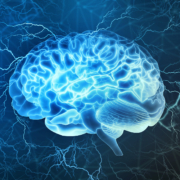5 ways to manage symptoms of Multiple Sclerosis
Multiple sclerosis (MS) is an unpredictable disease of the central nervous system that disrupts the flow of information within the brain, and between the brain and body.
The exact cause of MS is unknown, but experts do know that something triggers the immune system to attack the central nervous system. The resulting damage to myelin, the protective layer insulating nerve fibers, as well as damage to neurons themselves, can derail signals to and from the brain. This interruption of communication signals causes unpredictable symptoms such as numbness, tingling, mood changes, memory problems, pain, fatigue, blindness and/or paralysis.
In short, neuronal damage can cause lots of problems and discomfort. And at this point, there’s no cure for MS.
Everyone’s experience with MS is different and these losses may be temporary or long lasting. According to two neuropsychologists who have studied MS for decades, this is why it’s so important for MS patients to manage their symptoms.
The experts—Dr. Peter Arnett and Dr. John DeLuca, both past presidents of the National Academy of Neuropsychology—said many MS symptoms revolve around cognition, which comprises perception, attention, information processing, and memory. Statistics from the National MS Society support this claim: Data from that group indicates up to 65 percent of people with MS will experience some changes in cognitive functioning, most related to speed of information processing, memory, and attention.
Here, then, are five tips for managing some of the cognitive symptoms of the disease.
Get by with a little help from friends
Friendships and social support also can go a long way toward helping a patient with MS manage symptoms. Several researchers including Dr. DeLuca, senior vice president of research and training at the Kessler Foundation, recently published an article about it in the October 2023 issue of Multiple Sclerosis and Related Disorders.
The study found that greater perceived social support is associated with better performance on processing speed and executive functioning measures among persons with MS.
Put differently, DeLuca said maintaining a strong social support network may be an important factor in optimizing cognitive health in MS.
“We are social creatures,” said DeLuca, who also serves as professor in the departments of Physical Medicine & Rehabilitation and Neurology at Rutgers-New Jersey Medical School. “It should come as no surprise that being around other people can be extremely beneficial.”
Stay on top of depression
Dr. Arnett, professor of psychology at Penn State University, has spent years investigating the link between depression and MS. A snapshot of his findings suggests that, anywhere from 25-30 percent of MS patients can experience significant depression. This is a serious uptick from statistics revealing that depression is prevalent in about 15 percent of the general population. It also offers hope for MS patients, as depression is treatable.
A recent study in Lancet Digital Health indicates that, compared with a waitlist control group, those patients who were randomly assigned to an online cognitive behavioral therapy (CBT) treatment showed improved quality of life and a substantial decline in depression scores.
“People who are depressed certainly don’t have to stay that way,” Arnett said.
Arnett added that if a person experiences depression and they get treated, they may be less likely to experience it in the future. He noted online versions of CBT will become available and will help broaden access to depression treatment.
Build a cognitive reserve
DeLuca also studies the importance of building a cognitive reserve—that is, how our lifetime of intellectually stimulating activity (e.g., music, reading, art, education, etc.) can build a brain that’s more resistant to the expression of a disease such as cognitive decline.
As he explains, people with high cognitive reserve are “much less likely to experience cognitive decline than people with low” cognitive reserve. DeLuca and several other authors published an article about this in a 2016 edition of the Journal of Neurology. Their takeaway: Reserve can be built and maintained over time based on ongoing participation in cognitively stimulating activities.
Of note, there is also evidence that cognitive reserve may provide a buffer against depression, as shown in a study published in the Archives of Clinical Neuropsychology by Arnett’s lab in 2018.
“It’s easy to do,” DeLuca said. “Join a reading club. something like that. Play cards with friends. There are any number of things you can do to get involved and build a cognitive reserve. So long as you’re stimulating your brain, you’re doing a good job with brain health.”
Seek rehab (if necessary)
Some people who have MS experience cognitive impairment; thankfully data indicate there are cognitive rehab programs that might be able to help.
DeLuca was among the authors of a 2020 study in Neurology that addressed this point. The takeaway: Neurologists and neuropsychologists can perform cognitive screenings to assess cognition, and treatments are available for those patients presenting with a certain amount of impairment.
“Treatment is available if cognition is suffering,” DeLuca said. “Talk to your healthcare provider about how to get assessed for cognitive issues and how to find professionals who can provide cognitive rehabilitation services.”
Experts call many of these treatments Disease Modifying Treatments, or DMTs. They are designed to reduce inflammatory disease activity and slow worsening disability.
Eat well
Finally, of course, is diet.
Eating right—particularly a plant-based and anti-inflammatory diet—can help maximize brain health for everyone, regardless of age, condition, or diagnosis.
While a Mediterranean diet comprising vegetables, fruits, and whole grains generally is the best for promoting brain wellness overall, Arnett said it also is a great choice for managing many symptoms of MS.
According to a 2017 study in Neurotherapeutics, there is evidence to suggest potential roles for vitamin D supplementation, tobacco smoking cessation, routine exercise, a plant-based, anti-inflammatory diet, and maintenance of emotional well-being as adjunct therapies to disease modifying therapies. Subsequent studies have shined further light on these approaches.
The take-home message: Become engaged and active in your own symptoms of MS. Ask questions and seek answers, as there are many things within your control to experiment with.









